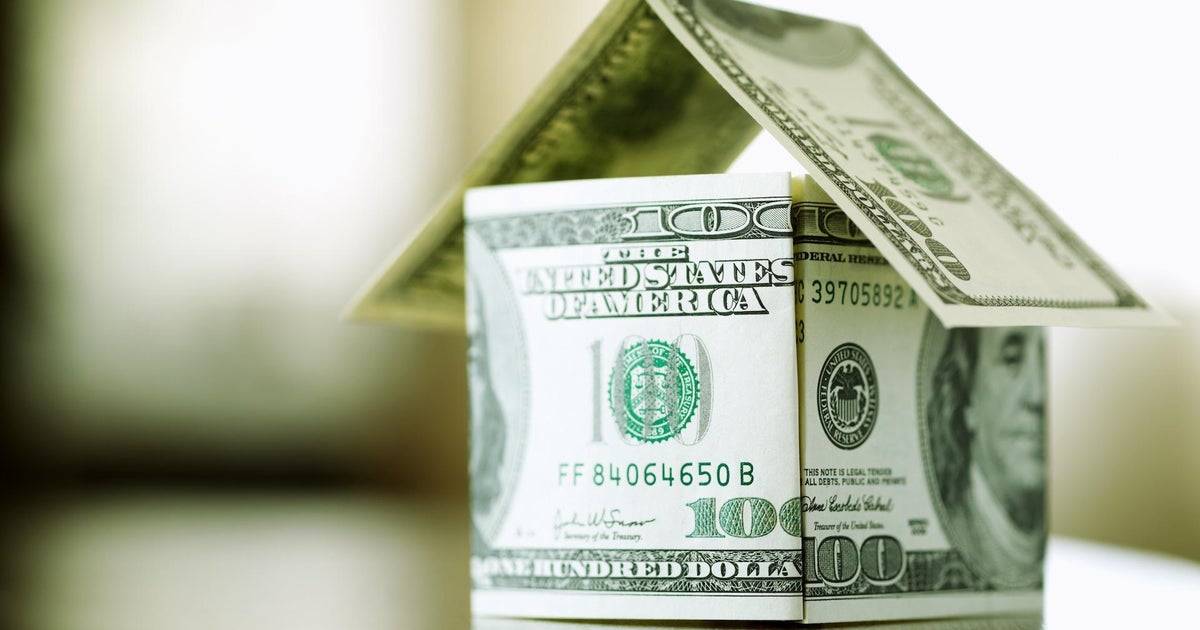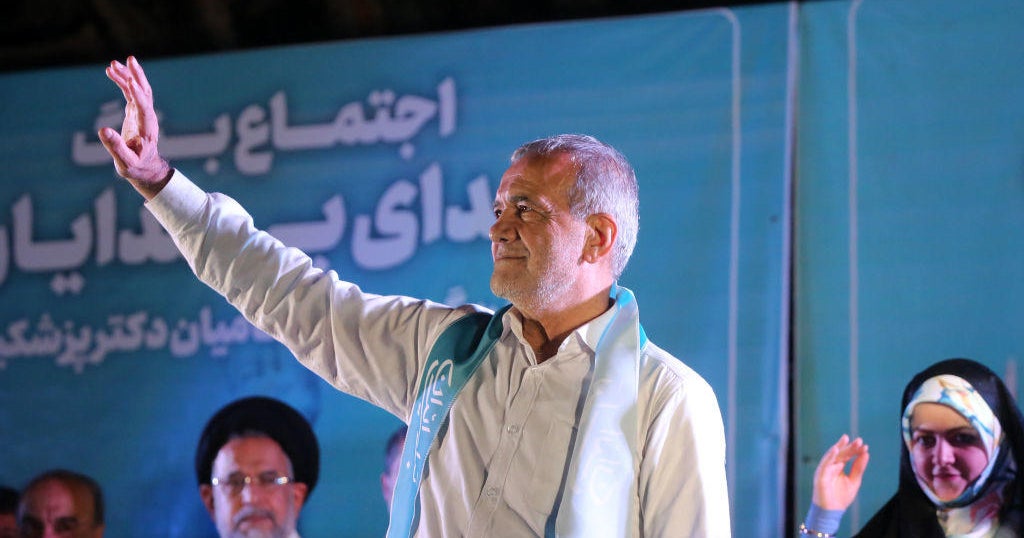CBS News
Mortgage closing fees are in the hot seat. Here’s why the feds are looking into them.

The Consumer Federal Protection Bureau last week launched an inquiry into what the agency is calling “junk fees in mortgage closing costs.” These additional fees, involving home appraisal, title insurance and other services, have spiked in recent years and can add thousands of dollars to the final cost of buying a home.
Here’s a deeper dive into the additional mortgage fees buyers pay before getting the keys to their new home and why five types of charges in particular are currently being looked at by the CFPB.
What are mortgage junk fees?
According to the CFPB, junk fees are those that “far exceed the marginal cost of the service they purport to cover.”
Although mortgage companies can charge a homebuyer more than 200 different fees to close on a property, the CFPB is particularly interested five types of fees and services that have seen price spikes in recent years, an official with the agency told CBS MoneyWatch. They include discount points, credit report fees, home appraisal fees and title insurance.
Discount points: Also known as “mortgage points,” discount points are upfront fees homebuyers pay to lower the interest rate on their home loan. Mortgage companies pocket the buydown fee, as it is also sometimes called.
Credit report fees: As the name suggests, credit report fees are what home lenders charge buyers for conducting a credit report on the borrower. Those fees go to the three major credit reporting agencies — Equifax, Experian or TransUnion.
Home appraisal fees: Also known as property appraisal fees, these are fees lenders charge homebuyers to have a private appraiser visit the property being purchased and place a fair market value on the home.
Title insurance fee: Mortgage companies also charge homebuyers for getting a title insurance policy, which covers the lender in case there’s a lien on the property once a title search is conducted.
Mortgage origination fee: Typically between 0.5% and 1% of the cost of the home itself, the mortgage origination fee is what the home lender charges a homebuyer for starting a new home loan application.
Why have these fees increased in recent years?
For the most part, home appraisal and credit report fees have increased because of rising inflation and rising labor costs, one expert told CBS MoneyWatch, but mortgage origination fees are a different story.
“Some of these are set as a percentage of the transaction price of the house,” said Susan Wachter, a real estate professor at the University of Pennsylvania who studies housing finance. “When housing prices go up, so do the fees.”
Wachter said that now is a good time for the CFPB to look into what’s causing closing fees to increase, but emphasized that many of the services and fees are are essential to the homebuying process.
What are the government’s concern about mortgage junk fees?
The CFPB is worried that junk fees may be eating away at homebuyers’ ability to place a reasonable down payment on their home. Excessively high closing fees may also lead buyers to fall behind on mortgage payments, officials believe.
The typical homebuyer paid roughly $6,000 in loan closing costs in 2022 — an amount that included paying discount points, title insurance, appraisal, credit report and other fees, according to the CFPB. That’s up from $4,889 in 2021.
The agency is investigating whether mortgage fees have climbed too high, along with possible solutions such as new regulation to lower them, the elimination of certain fees altogether or having someone other than the homebuyer pay the fees, the official told CBS MoneyWatch. For now, the CFPB has asked homebuyers to share stories of how much they paid after closing on a home. That information will be used to determine the agency’s next step.
How are costly mortgage fees affecting homeownership?
The U.S. homeownership rate has fallen from 66% in 2023 to 65.6% in the first quarter of 2024. The two biggest hurdles to increasing the homeownership rates are a lack of affordable properties and buyers’ inability to save for a down payment, according to research from the National Association of Realtors. Excessive mortgage fees exacerbate those hurdles by eating away at homebuyers’ purchasing power.
Junk fees keep would-be homebuyers who are financially constrained on the sidelines, according to Wachter. In most areas of the country, it’s cheaper to rent housing than buy and “that’s because of down payments and those fees,” she said.
“It makes becoming a homeowner daunting,” Wachter said. “And rents are high too, so for young adults who are either living with their parents or with their buddies, [obtaining homeownership] is much more difficult for them than their older siblings or their parents.”
What do banks and lenders have to say about excessive closing fees?
The Mortgage Bankers Association (MBA), the trade group covering real estate finance, said there isn’t much lenders can do to lower or eliminate mortgage closing fees because the services they cover are legally required.
“Many of those disclosed costs, such as title, appraisal and credit reports are required by federal statutes, safety and soundness guidelines, and the Federal Housing Administration, Department of Veterans Affairs, and Fannie Mae and Freddie Mac as a condition of buying and insuring a mortgage,” the association said in a statement last week. “Moreover, the services these fees cover mitigate risk for taxpayers and borrowers alike.”
The MBA said lenders worked with the CFPB a decade ago on making sure mortgage fees were laid out clearly for buyers on mortgage disclosure forms. Rules that govern the mortgage process fall under the 2010 Dodd-Frank Act. If the CFPB wants to make changes, amending the Dodd-Frank Act “is the only appropriate vehicle to initiate that work,” the MBA said.
CBS News
7/5: CBS Evening News – CBS News

Watch CBS News
Be the first to know
Get browser notifications for breaking news, live events, and exclusive reporting.
CBS News
Moderate Masoud Pezeshkian wins Iran’s presidential runoff election

Reformist candidate Masoud Pezeshkian won Iran’s runoff presidential election Saturday, besting hard-liner Saeed Jalili by promising to reach out to the West and ease enforcement on the country’s mandatory headscarf law after years of sanctions and protests squeezing the Islamic Republic.
Pezeshkian promised no radical changes to Iran’s Shiite theocracy in his campaign and long has held Supreme Leader Ayatollah Ali Khamenei as the final arbiter of all matters of state in the country. But even Pezeshkian’s modest aims will be challenged by an Iranian government still largely held by hard-liners, the ongoing Israel-Hamas war in the Gaza Strip, and Western fears over Tehran enriching uranium to near-weapons-grade levels.
A vote count offered by authorities put Pezeshkian as the winner with 16.3 million votes to Jalili’s 13.5 million in Friday’s election.
Fatemeh Bahrami/Anadolu via Getty Images
Supporters of Pezeshkian, a heart surgeon and longtime lawmaker, entered the streets of Tehran and other cities before dawn to celebrate as his lead grew over Jalili, a hard-line former nuclear negotiator.
But Pezeshkian’s win still sees Iran at a delicate moment, with tensions high in the Mideast over the Israel-Hamas war in the Gaza Strip, Iran’s advancing nuclear program, and a looming U.S. election that could put any chance of a detente between Tehran and Washington at risk.
The first round of voting June 28 saw the lowest turnout in the history of the Islamic Republic since the 1979 Islamic Revolution. Iranian officials have long pointed to turnout as a sign of support for the country’s Shiite theocracy, which has been under strain after years of sanctions crushing Iran’s economy, mass demonstrations and intense crackdowns on all dissent.
Government officials up to Supreme Leader Ayatollah Ali Khamenei predicted a higher participation rate as voting got underway, with state television airing images of modest lines at some polling centers across the country.
However, online videos purported to show some polls empty while a survey of several dozen sites in the capital, Tehran, saw light traffic amid a heavy security presence on the streets.
The election came amid heightened regional tensions. In April, Iran launched its first-ever direct attack on Israel over the war in Gaza, while militia groups that Tehran arms in the region — such as the Lebanese Hezbollah and Yemen’s Houthi rebels — are engaged in the fighting and have escalated their attacks.
Iran is also enriching uranium at near weapons-grade levels and maintains a stockpile large enough to build several nuclear weapons, should it choose to do so. And while Khamenei remains the final decision-maker on matters of state, whichever man ends up winning the presidency could bend the country’s foreign policy toward either confrontation or collaboration with the West.
The campaign also repeatedly touched on what would happen if former President Donald Trump, who unilaterally withdrew America from the Iran nuclear deal in 2018, won the November election. Iran has held indirect talks with President Joe Biden’s administration, though there’s been no clear movement back toward constraining Tehran’s nuclear program for the lifting of economic sanctions.
More than 61 million Iranians over the age of 18 were eligible to vote, with about 18 million of them between 18 and 30. Voting was to end at 6 p.m. but was extended until midnight to boost participation.
The late President Ebrahim Raisi, who died in a May helicopter crash, was seen as a protégé of Khamenei and a potential successor as supreme leader.
Still, many knew him for his involvement in the mass executions that Iran conducted in 1988, and for his role in the bloody crackdowns on dissent that followed protests over the 2022 death of Mahsa Amini, a young woman detained by police over allegedly improperly wearing the mandatory headscarf, or hijab.
CBS News
Biden set for pivotal 24 hours with primetime interview

Watch CBS News
Be the first to know
Get browser notifications for breaking news, live events, and exclusive reporting.









